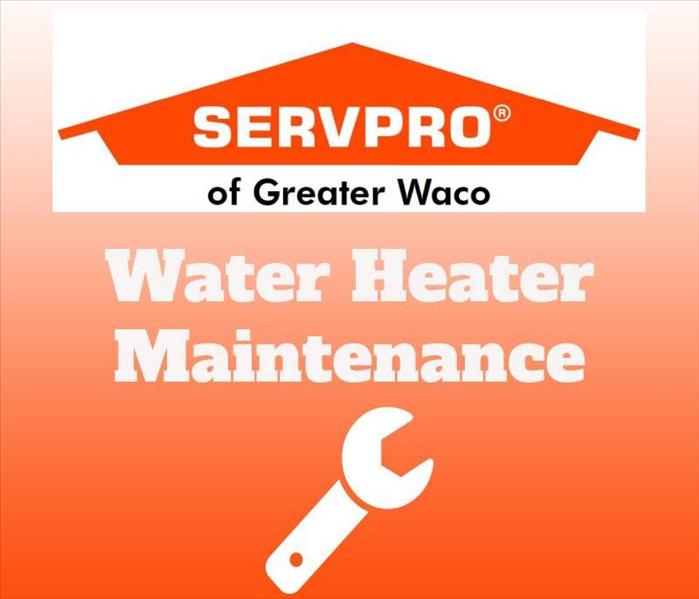Water Heater Maintenance
10/1/2021 (Permalink)
Water heaters should last anywhere from 6 to 13 years with most warranties covering the tank and parts for 6 years. With a little basic maintenance, you can ensure your water heater last as long as possible. Here are a few tips on maintaining your water heater.
-Check the Pressure Relief Valve or Temperature Pressure Relief (PRV or TPR). Turn off the electric or gas, depending on your water heater, and the cold-water inlet. Put a bucket under neath the discharge pipe and lift the lever on the valve. If water isn’t released when you lift the lever, then replace the valve. If water continues to flow after testing then you’ll need to replace the valve as well. Replacement is as simple as draining the tank, unscrewing the valve and replacing the old one while making sure to sure use Teflon tape on the threads.
-Drain the tank and check for sediment. Let the tank drain until it is running clear and is clear of any sediment. Sediment can cause clogged lines and reduce the life and efficiency of a water heater. Check and make sure there aren’t any additional leaks around the drain valve and that it’s not loose or spinning. If so, completely drain and replace the valve.
-Check the temperature. You can save money on your energy bill by lowering the temperature as little as 10 degrees. Simply remove the temperature dial cover and adjust the dial to 120 degrees with a flat head screw driver. Most water heaters come set at 140 degrees. It’s recommended that you adjust the dial to the lowest setting if leaving for more than a few days.
-Insulate your water heater. A ridged piece of insulation, or bottom board, can save you anywhere from 4-9% off of your energy bill. To know if you need to insulate your water heater, check the R value on the water heater sticker. If the value is below 24 then it needs to be insulated. An insulating blanket is the simplest solution and comes with easy installation instructions.
-Check the anode rod. The anode rod is the long metal magnesium, aluminum or aluminum/zinc alloy that attracts corrosive elements in the water. While it’s recommended that you check the anode rode, realize that by changing it yourself, you may void the warranty. Before replacing make sure to check your warranty or contact the manufacturer before trying to change it yourself. Most anode rods need to be checked every one to three years and replaced when it is consumed more than 50 percent. By checking the rod, you avoid corrosion inside of the tank and can extend the life of your water heater up to double the expected lifespan.
Water heater leak? Need water mitigation services? Call SERVPRO® of Greater Waco 254-224-5999





 24/7 Emergency Service
24/7 Emergency Service
